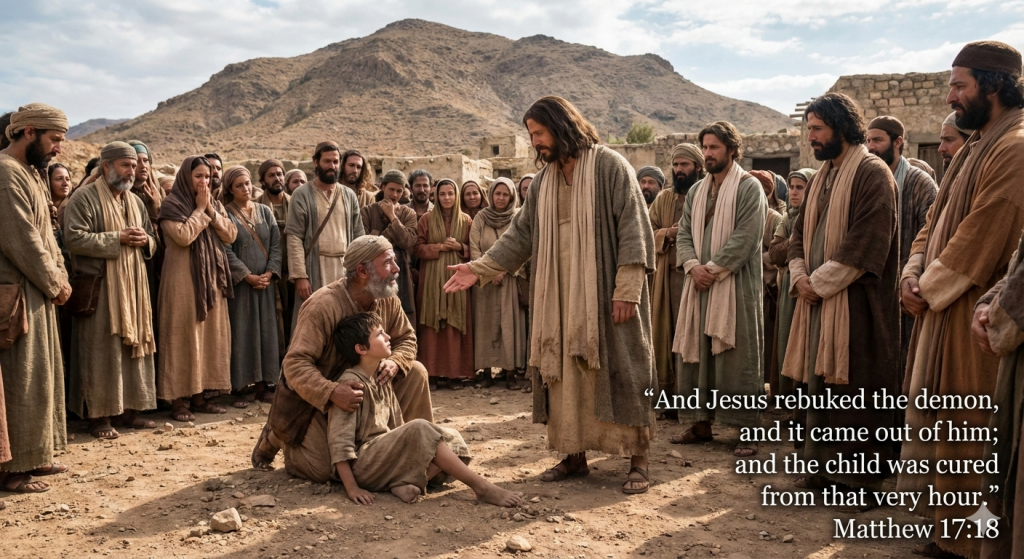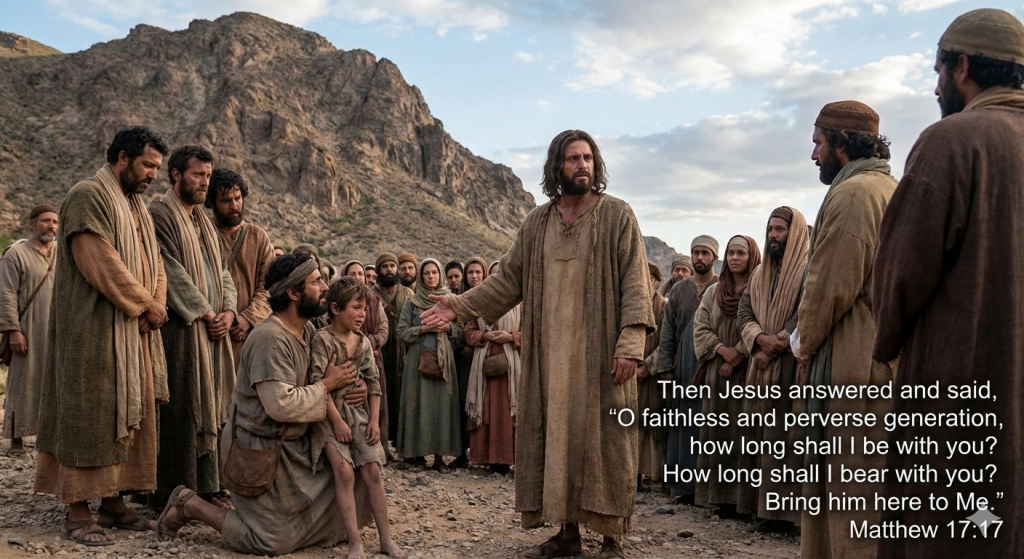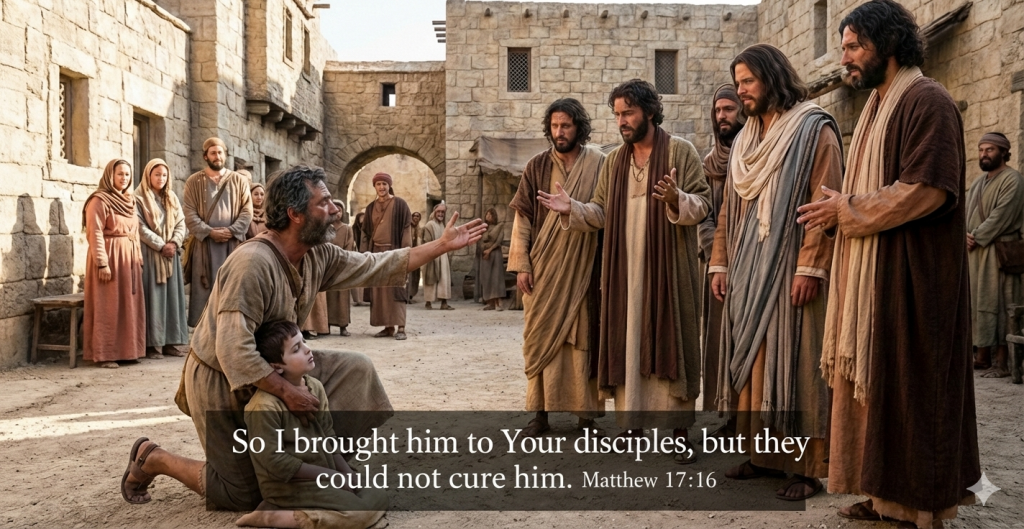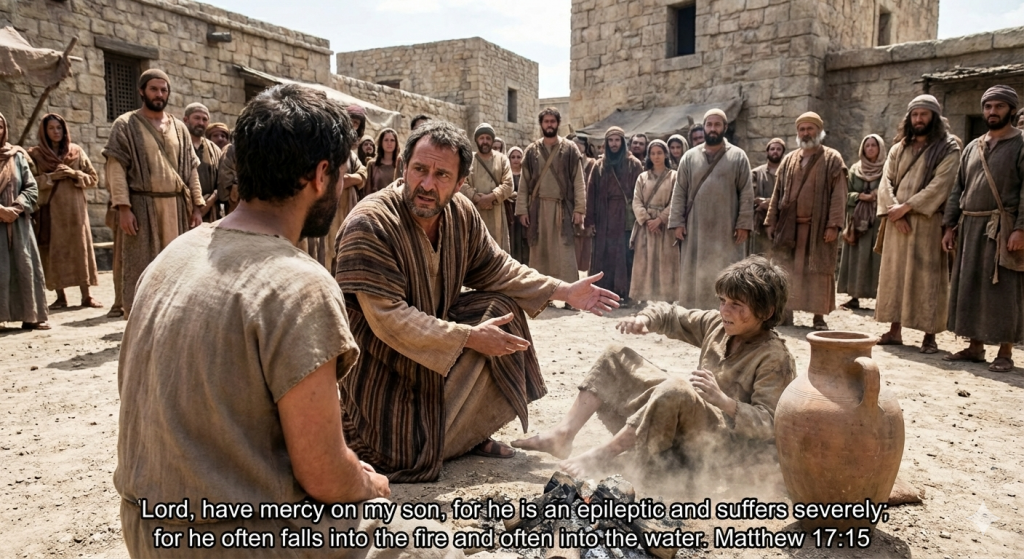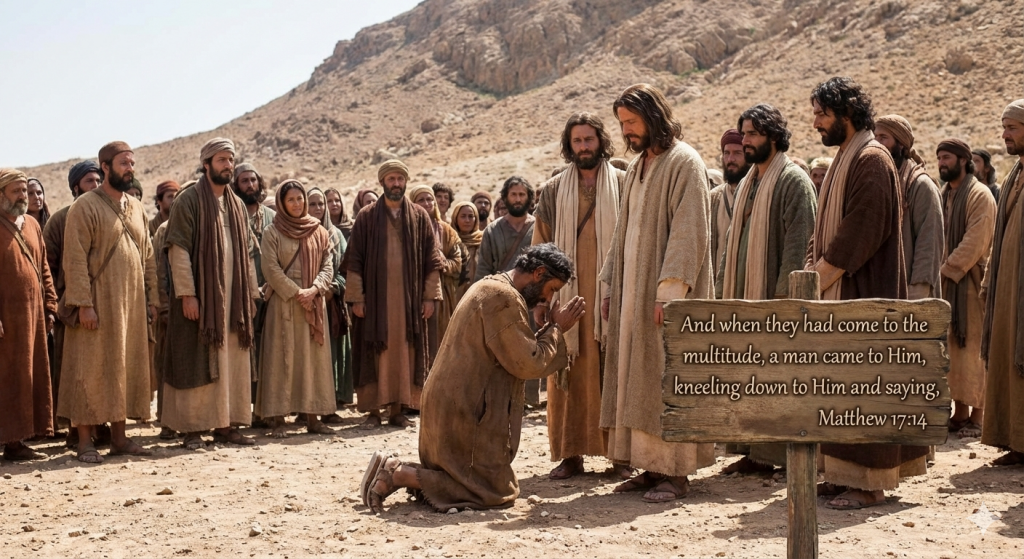Wednesday, 4 March 2026
And Jesus rebuked the demon, and it came out of him; and the child was cured from that very hour. Matthew 17:18
Note: You can listen to today’s commentary courtesy of our friends at the “Bible in Ten” podcast. (Click Here to listen).
You can also read this commentary, scrolling with music, courtesy of our friends at “Discern the Bible” on YouTube. (Click Here to listen), or at Rumble (Click Here to listen).
“And Jesus, He admonished it, and the demon, it proceeded from him, and the boy, he was cured from that hour” (CG).
In the previous verse, Jesus called those who were unable to heal the boy a perverse generation, wondering how long He would have to be with them and uphold them. He then asked them to bring the boy to Him. Matthew next records, “And Jesus, He admonished it.”
The verb is masculine, as is the next verb, which refers to the demon. Therefore, it is debated who is being referred to. The Pulpit Commentary says, “Some take the pronoun as masculine, and refer it to the diseased boy; but it is more natural that the rebuke should be addressed to the possessing demon.”
They are right. Despite the boy being the nearest antecedent (Bring him here to Me) of the previous verse, Mark tells us who Jesus was speaking to –
“When Jesus saw that the people came running together, He rebuked the unclean spirit, saying to it, ‘Deaf and dumb spirit, I command you, come out of him and enter him no more!’ 26 Then the spirit cried out, convulsed him greatly, and came out of him. And he became as one dead, so that many said, ‘He is dead.’ 27 But Jesus took him by the hand and lifted him up, and he arose.” Mark 9:25-27
One would normally assume that the nearest antecedent, the boy, would be the subject, but Matthew took the additional care of explaining the verb after the fact, saying, “and the demon, it proceeded from him.”
Though this is not the usual way grammar is used, it is acceptable, especially if one knows there is another gospel record to be referred to. Though each gospel is a standalone account, together they form a larger tapestry of what is happening in accounts such as this. With the demon out of the boy, it next says, “and the boy, he was cured from that hour.”
The meaning of “from that hour” is “immediately.” That is to be understood from Mark as well.
Life application: Whatever specifics the scribes and the disciples were arguing over (as indicated in Mark 9), the fact is that none of them were able to restore the boy to normalcy. And more, the father wouldn’t have just waited around hoping the Messiah would show up someday. He would have consulted physicians, those at the local synagogue, and anyone else who might be able to help.
And yet, his son remained in his tragic state. But when Jesus arrived on the scene, it was a few moments of discussion and then instant healing. This is just the same as our salvation. We may entreat eastern religions, seek out spiritualists, meet up with mediums, consult the Koran, or open up the Upanishads, but there is no light and no healing in them.
But the moment we come to Christ, accepting the gospel of our salvation, we are sealed with the Holy Spirit (Ephesians 1:13, 14). There is no delay, no second-guessing, and no “taking it back” by God at a later date. Rather, there is immediate relief from the burden of sin and total healing of the soul. The connection to God is restored, and we are – from that moment and forever – accepted into His kingdom.
Try to always remember the joy of that moment. Carry it with you and remind yourself of it often. The more you hold close the wonder of that day, the better off you will be when times of trial and trouble trickle into your life. They will not be able to overtake you when you remember that everything here is just a temporary step on the way to eternal glory.
Lord God, how grateful we are for the immediate and eternal salvation that came to us the day we believed. Thank You for the assurance we possess. We are saved! Yes, saved forever because of Jesus Christ, our Lord. Hallelujah and amen.

